Editor's Note: This story is taken from the GOOD10 Ocean's Issue. You can download and read the entire digital magazine issue for free here.
Labor activist Patima Tungpuchayakul waves to me over video chat from Thailand, but by the end of an exhausting day her ever-bright smile quickly fades. She looks down at her cell phone, clearly concerned that another heinous crime might slip through the cracks without her tireless vigilance. Her translator recounts the details of Patima's intensely demanding job. For a year now, she's helped a 16-year-old girl seek justice after she was abused, sexually assaulted and raped at the hands of her father since she was eleven. Her phone buzzes with the news the offender was arrested and placed into custody. A cloud of depression lifts from her face. She exhales, grinning again. In this split second, she knows this girl's life will be changed forever.
The girl Patima helped rescue came to Labour Protection Network (LPN), an advocacy organization Patima co-founded in 2004 with her husband Sompong Srakaew, which helps mistreated children and enslaved workers in Southeast Asia. Patima provided her teen client with safe refuge and rehabilitation from her father's sexual abuse, as well as legal advice and counseling. "He deserves to be in prison," Patima says. "I'm here to support the girl, talk to her attorney and help anyway I can. I want all women and men to feel protected and safe."
The world's oceans are under attack from a litany of man made problems: over-fishing, ocean plastic and climate change. But humanity itself is just as often at risk on the open waters, where international law is often powerless to stop the illegal fishing and human trafficking that feels like something out of the 1800's.
Patima has devoted her life to saving others. Even if it means dodging the mafia, the police and government officials who have all attempted to kill her—more times than she can even count. After freeing thousands of men forced into lives of slave labor, her diplomatic efforts led to a Nobel Peace Prize nomination in 2017. Her plights and heroism are uniquely captured in the 2018 documentary, Ghost Fleet, directed by Shannon Service and Jeffrey Waldron, which reveals decades of illegal and unregulated fishing that has forced boats to travel further from Thai shores to garner a worthwhile catch. Companies hired traffickers to lure and kidnap migrant workers from rural Thailand or impoverished neighboring countries like Myanmar and Cambodia for little to no pay. They do this to solve their labor shortage and keep up with the demands of Thailand's sprawling seafood business, one of the largest in the world.
Some of the enslaved men jumped overboard to escape their harsh realities, while others are captured and locked up in prison or even killed. Patima often travels to Indonesia looking for captive men and attempts to bring them back to their homeland and free them. Her goal is to rescue, reunite them with their families and obtain wages for them. These men have spent years out in sea and often their families don't know they're still alive.
One survivor, Tun Lin, was kidnapped when he was 14 and forced to fish for 11 years off the coast of Somalia. He suffered years of abuse and trauma. "Slave was just a word I heard. I didn't think it existed anymore. I was forced to work around the clock," says Tun Lin in Ghost Fleet. He escaped by jumping off the fishing boat—until he was hunted down in a jungle, captured and thrown into an Indonesian prison.
"Patima is the one who saved my life, says Tun Lin. She showed up at the prison and released him. "She's like family to me." Five months after his rescue, LPN helped him receive 300,000 baht, which is about $9,400. He's one of the only survivors who have been compensated. Together, they continue to rescue other trafficked fishermen and pursue justice for all.
Pong, another rescued survivor in Ghost Fleet, reunited with his father at the airport in Bangkok after being enslaved for three years. Patima and her team brought him back after he was stranded on Benjina Island. Today, he struggles with severe alcohol addiction from his harrowing experiences. Some of the men suffer from post-traumatic stress disorder, while others are still left homeless foraging for leaves and grass in Indonesia. Sometimes it takes years for Patima to find them. There are times when they don't want to leave their wives and kids and go back home. Despite what happens, these efforts are dangerous and almost always life-threatening.
"I never think I'm going to come back alive. I'm prepared to die," Patima says, shaking her head mournfully. "But to choose to work in this environment— I can't have fear. I'm more worried about the missions. You can't be careless and you have to be aware." She pauses, sinking into her chair. "You may be beaten or caught, but you just have to talk it out calmly. I may get hurt by bad people. They have weapons. They are angry. But I have to remain calm. I'll never stop. I want to always help people."
You mentioned in the film that fear is a kind of death. You've really never feared being hurt or killed while filming Ghost Fleet? What about any of your other missions?
I'm not afraid at all. While filming, the captain of the boat said to me, "You may get hurt." I told him, "It's okay, everybody dies, eventually." I'm more fearful of not doing things. The only thing I'm afraid of is that I won't be able to finish my work. I have to complete my missions. I'm scared that I'm unable to help other people. With fear or being afraid, you need to be cautious or mindful and not let your guard down.
You claimed in the documentary that hundreds of enslaved fishermen showed up on your doorstep one day and you decided to help them. How did they find you?
The fishermen are the parents of kids I've helped. I was working on one case in 2004, where a migrant child's relative was sick from Beriberi. I helped him to the hospital. He was a fisherman that went to work in Indonesia with 66 other men. Only 19 survived. He reported the incident to us because he barely lived. That was the first time I received a case of Thai fishermen in Indonesia, or what I call the Indonesian fishing crew. After that, people kept coming to report incidents to me. Then there was another case of 128 fishermen, mostly Burmese, who I helped rescue, as well. This was over ten years. Their boat traveled to places like Ambon Island and Benjina. That was probably the most tiring and difficult mission I've ever had. This disabled man who was part of the crew reported the incident in 2006. Half of his body was not functioning. He basically went to work on the boat and when he became disabled, he was abandoned in a temple. He was left in Indonesia for almost two years. He didn't get any wage or compensation either.
Is that what prompted you to help enslaved men in Indonesia?
I felt like I could no longer refer cases to the people who do rescue missions there. I knew I had to go myself. In 2013, I went to Indonesia. I thought there would be more cases that needed help in Indonesia than in Thailand. In the past, I've helped more than 1,000 fishermen within the Thai waters. I've helped them out of jail around the ports, which is where they are captured. I've been to Indonesia 18 times helping enslaved men.
Over the past 16 years, what has been the most concerning case?
The case that shook me the most was about another girl who got assaulted by her father. She wanted to die. She felt helpless because she had no one to turn to and she didn't have anywhere to go. I wanted to help her, make her feel better and safe. She was one of my first cases that I've worked on since 2005. She blamed everything on herself. I felt that we needed to heal her. I want every child to have a chance to get an education, especially so they can know their rights, have access to solutions and be able to find a safe place for themselves. I also felt really bad when I did not make it in time to help a fisherman in Indonesia. He ended up dying. I kept asking myself, "Why didn't I make it sooner?" I was so upset. I blamed myself. Sometimes when I go to help, it's too late. Sometimes these men are left on islands for decades. I feel so awful.
Have you ever been threatened?
Yes, like when I was in Indonesia, the police were trying to get us out of there. It was 11 p.m., and I was trying to find a solution by going to the immigration office. There were some mafia guys coming in with sticks threatening me. They wanted to kill me. I did not make a scene, I just looked at their faces. I didn't react. They were trying to take away my passport, but I didn't go anywhere with them. I knew better. I just sat down and was deep in thought. They were pretty confused as to why I did not respond or follow their orders. About an hour later, I told them that I was there to help people. They finally realized that it was an international matter. I believe in having dialogue. They eventually calmed down and we talked. But they hated me. They were saying terrible things. They brought in tons of people, trying to surround and intimidate me. I remained calm, and said, "Look at this person, he's missing. Have you seen him?" But the truth is that they were the ones that made the man disappear.
Have the police ever harmed you?
They've tried to lure me to be killed. They've tried to threaten me or use people to put pressure on me. They've tried to scare me. There's been people threatening me at my office. They bought in police to take photos like they were trying to use psychological threat. There's been hundreds of police cars surrounding me for intimidation. Three years ago, one of the fisherman went to collect his wages from work that he was owed. His employer wouldn't pay him, so he got angry and punched him in the face. The employer then hired police officers to severely beat him up. I went to clear the situation. There were 42 employees and employers and many business owners from the district who all came. They all surrounded the police station. No one would let me leave. The situation got dangerous. I got out of it by calling the military for help. Everybody thought I was going to die.
You mention in the film that the police, the mafia and the traffickers are working together to enslave fishermen. Is it all for money?
It's about benefits, corruption and business. There is so much corruption with our local authorities. It's like the same as a drug dealing. They invest very little, but the return is massive. For the drugs, you have to pay, but for human trafficking and slave trading, you just lure people. The buyer pays 5,000-10,000 baht per human life, which is only a few dollars. Then they can use that slave for life. They lure and deceive homeless, uneducated or unaware people, who want to work—they lie and say the work is easy and good pay. If they lure 10 people, and their prize per head is 15,000 baht, they earn 150,000 baht. Then they can use that money to build jails and the slaves wait to there to be placed on a boat. It's not just in Thailand, because in Indonesia, there's also slave usage throughout the country. They are not interested in helping people either.
You are crying a few times in Ghost Fleet. How does hearing all these stories affect you?
I think people have no right to do horrible things to other people. I don't like it. I try to fix and change it. I believe that the Thai government should be helping their citizens. They should take responsibility for the people who are not treating the citizens of neighboring countries well. I'm frustrated. The people who don't feel this way are the mafia. They don't worry about safety—for me or anyone else. I don't care that they are influential. It's wrong. I think there should be no power held over fellow human beings. They shouldn't be able to decide who lives or dies. The fishermen don't want to work, but yet, they force them to be there. They should be able to simply go home. They aren't making any money. What's the reason for this? What's the reason for them not being able to organize a funeral for a loved one who had died? I feel that it's not right at all.
Has the migrant forced labor situation improved or worsened since the film released?
I think the scale of using the full slavery has decreased. However, the exploitation of the workers still exists. At first there was no laws for protection. The best thing is that our laws have started to pass to protect the fishermen in the boats. Voices are being heard now. The movie is making people realize that slavery still exists in the world. It's never disappeared. I believe we should be looking out and helping in order to prevent these occurrences. Ghost Fleet helped open the eyes of people around the world. Slavery needs to end.
These fishing companies are ruining ecosystems and destroying lives. You are trying to stop it. Why doesn't the Thai government step in more?
The Thai authorities will never have the mindset about the conservation of fish or the ocean. The people are destroying it due to overfishing. There is no more fish in Thailand's ocean because they're using tools to destroy them. Then they use people as slaves to do all the work. The victims have no choice. The business owners only care about the most profit. There is nothing legal about this. They don't believe fishing needs to stop so that fish can grow. They don't have good plans for fishing and we don't have set times to do it. They never had the mindset of doing business sustainably. We only want to seek the most number of fish and hold the world record for being one of the biggest fish exporters. Then we get banned from exporting because we use slave labor.
Why doesn't the United States help?
America doesn't care either. They don't pay attention that there's actually modern slavery happening. With the sustainability of food consumption in this world, we've never thought about our children at all. Only 40% of the fish caught are actually being consumed. The rest is thrown away. I think this is the mindset of people around the world. We all want to consume good quality food, but we don't think about whether we will be able to eat seafood forever, or that enslaved men are catching it. Both countries just look at the economic value with the most returns and benefits, but they do not look at the environment or take human rights seriously.
Thailand's Prime Minister Prayut Chan-o-cha was featured in your documentary. He didn't address how the government is going to take action. Do you feel Thailand is committed to combating human trafficking and slave labor?
In the beginning, I think the government probably thought about the exports, and they're probably afraid of being boycotted. In this second phase, they started caring about labor rights more. I think they're trying. When you think about continuity, after they are able to correct the image, will they stop then? I'm worried about it. In reality, you have to do it continuously. The positive thing is that now the workers in the fishing boat actually started to learn their rights and aren't as afraid. Whereas before, they have been suppressed as if they're not human. People can now get together and exercise the power to negotiate. They can finally stand up and fight.
The U.S. imports more than 80% of the fish it consumes. It's been reported by the Guardian that Walmart, Carrefour, Costco and Tesco are allegedly the top four global retailers in buying forced labor seafood, with or without their knowledge. According to the Associated Press, Sysco is the biggest food distributor. They claim tainted fish also ends up in grocery stores like Kroger, Albertsons and Safeway. Do you think all these companies are aware of what's going on?
I think so. They don't put enough effort to build supply chains that have no slave trading. They're not trying. The pressure would have to come from the consumer. Instead of thinking about the fresh, clean good quality of fish that's advertised, people may want to ask if the fish are free from slavery within the product brand. If you really want to wipe the supply chain clean, there must be a lot of effort put in, so that you can scan the fish and make sure it's caught legitimately. But this can be expensive. In some places in Europe, they will tell you where the fish was caught and what ocean. Consumers may have to be responsible for the higher cost, but the people in the supply chain should be responsible too.
Do you think enslaved men get married and have kids while stranded to create some normalcy to their life? You are offering them a way back home, but some chose not to go. Why?
LPN's goal in meeting the fishermen is to tell them that we care about them and that they are able to contact their family. They can either go home or not because it's been a long time since they left. They might want to visit Thailand and re-connect with their loved ones. It's their decision. Some of the fishermen don't get married for love. It's for survival. In order to survive, you have to become a member of that community by getting married, otherwise they have to live in the forest eating potatoes. It's up to them. My first priority is that I'll try to tell their family that the person is still alive and living in Indonesia. Most families don't know they are still alive. If the phone is available, we connect them. For the people who come back to Thailand, we encourage them to fight for their wage so that they will have money to take care of their families in Indonesia. Some people work for 10 years and they never get paid. I encourage them to come back to file legal complaints to get the wages they deserve.
Why don't they bring their families back home to Thailand?
It's quite hard. The processing of the document is like passports and it takes a long time. It's not like you can do it within three days. It's not that easy. Two people have brought their families back so far. Being in Thailand is easier to survive than being in Indonesia. Even when you have nothing to eat, you can eat in the temple, but over there you don't have much.
In the beginning, LPN was primarily focused on protecting children from sweatshops. What is the child labor like in Thailand? How have you been helping them?
Child labor is terrible. They work more than 10 hours inside cold storage. The kids are 10 years old and younger. Some of the kids work on the fishing boat and are about 12 years old. My work is to pull them out of the workforce, fishing boat and in the factory and have them go to school. After doing this for 15 years, I've only rescued 15,000 kids—I've helped them get an education, but those numbers are considered very low. Only 4,000 children were able to attend the school system. We also went to raid the factories that kept children. We've rescued about 500 children who were raped, assaulted or became disabled from losing their limbs.
Today you heard that a father was arrested for sexually assaulting his 16-year old daughter. What happens next?
This girl she was raped every Sunday for years. She became pregnant and her mother took her for an abortion. Ten days later, she was abused again. She came to LPN in November last year. She's very strong. I'm helping to support her and talk about what happened. Now they are onto interrogation stages. She's been giving her testimonial through video calls. She's waiting to go to court to get the verdict against her father who has done terrible and violent things to her. I strongly believe that he will get what he deserves because he's been abusing her for so long and there's lots of evidence.
When you were 22-years-old, you were diagnosed with ovarian cancer. You've been in remission since. You claimed it made you think differently. Is that what prompted you to help others?
I've been helping people before I got cancer, but I wasn't as gentle then. I've been helping poor people or street kids for so long. It felt like I was out of it because you carry people's burden so much in order to change things. It wasn't possible all the time. I had no balance to my life. I was putting other people's lives before my own. But when I had cancer, I had to take a step back because I had to survive and take care of myself too. Before, I never took care of myself at all. That's why I've become more gentle now. I have a goal I set for the rest of my life. I help as many as I can, but I also have to make sure I'm okay. Two years ago, I found out I had a tumor. But it was non-cancerous. I tell myself it's okay— if I can't help people today, I'll think about a new way for tomorrow. When I realized that, all the burden was gone. Some people may feel like a failure because they didn't make it in time and then people are dead. I won't put pressure on myself anymore and stay up all night worrying so much. It's not healthy.
Someone left a boy outside your office and you adopted him. Has being a mother changed your perspective on life at all?
He is a gift in my life. I wanted to have children, but I can't because of the cancer. Then all of the sudden I had this baby Pui Mek. He will grow together in our lives. He also heals. On one hand, my husband Sompong and I might get swamped with work, and then my baby will come in and be like, "Mama, I want snacks, please!" Being with him makes my mind switch from work mode and makes me more relaxed. I don't have to talk work with my husband all day and night. We talk about our kid and we plan our lives. My boy never makes a fuss. He is very cute and understanding. Like in the film, he understands that "Mama is helping other people."
Is it a normal practice in Thailand to leave a child behind? Did you know the mother?
When I found Pui Mek, my husband didn't know I would bring him home. I told him, "You rent a lot of houses, right? I never tell you no. So, when I bring him home to raise, you can't say no either." It was quite funny. The first three days my husband was really confused. Pui Mek was sleeping in our room, but Sompong wasn't sure what to do. But when he started to hold him, he wouldn't give him to anyone. He said it was his son now. I think deep down he wanted to have a baby. When Pui Mek came, he became our main focus. We are both so happy. I know his birth mother. I've met her and talked to her. In the beginning, I told her, whenever she's ready, she can come for him. But I asked her if it's more than three months, please don't come because he would be confused. She never came. He knows that he has a birth mother. I'm not sure we will ever be able to find her again. My boy is also worried that if we do, he might have to go back to her. I told him, "You are staying with me." I never signed any documentation for adoption because she suddenly left. But it's okay, I'll always love him.
Some of these enslaved workers are very, very young. What's it like rescuing abused kids so close to your son's age?
It's heartbreaking. In the past, employers liked using kids under 18, since they were single and enjoyed challenges. But the kids don't know they are facing death or that they are a slave. Some kids get captured at 12 years old or younger, then when we find them and help them out, they are about 33. Mostly the fishermen who were stranded in Indonesia were the ones who were fishing on the boat since they were young. They would finish primary school, then they would be captured and found when they are older. In some boats in Thailand, when we go to check, we only find kids, but we are not the law enforcement officers. Government turned a blind eye to it and let them work on the boat. That was before the law changed, but now the law has passed, people under 18 can't work on the boat anymore.
Your husband Sompong Srakaew has helped strengthen the laws on human trafficking in Thailand. Do you work on the same cases together?
We honor each other. I let him lead, but in reality, I'm the one who tells him what to do. [Laughs.] It's like having a president, but the wife is very clever. I'm on the front lines like Hillary Clinton. We work on the same cases, but I like working in the field. I don't like to put my face out there and be on the news. Sompong is the one who's doing PR, talking to the states and government officials. He knows how to defend, which is something I don't like to do. Sompong is kind, has a good heart and gives everyone a chance. Working with him is great because we are so different in terms of our personalities and approach. But we have the same goals. There's a balance to it. I rush to go do things and sometimes I'm forgetful. Sompong is calm and always supports me. He's usually in the office coordinating things—he's like the chief of military staff, who plans, builds strategy and works with the government to help us. He sees the overall picture. For example, if I go to the field and I'm in danger or nearly die, he would be the one who coordinates finding someone to rescue me. Or If I get bombed, he'd be the one who reports the news. Hopefully, that never happens.
How many captive men have you reconnected with their families? What story has resonated with you?
It's been 2,968. I rescued six people who were jailed in Ambon Island many years ago. I thought I wouldn't be able to fight it. They would have probably been dead if we didn't help them home. After they were released, there were several thousand others. I wanted to help them home too. Eventually, the fishing crew was sent home on a plane. That's never happened before. That's the most memorable one because it's the first time that Thai fisherman received help and touched Thai ground through air travel. It meant that all these men had an identity. They weren't ghosts anymore. They were alive. One of the men looked exactly like my father. He talked like him too. I felt like I was helping my dad come home. It touched me. Honestly, my dad is actually at risk of being taken into the boat because he's a drunk. But the man I rescued was a monk before he got taken into the boat in Bangkok's Hua Lamphong station. I don't think he was mentally stable since he was young. It took us three days to be able to locate him. We found him three hours before the plane left. He said to me, "Help me, please take me home." I felt so happy that I was able to do that. Now he's back in his village in Ubon Ratchathani in Thailand.
After ten years, enslaved worker Pong was reunited with his father Ploy. What was that moment like?
Well, I brought back someone who thought his son was dead. I've experienced thousands of people who've had that moment. It's incredible. Pong's case was one of the later ones. My feeling was that the mission was successful and that I was able to bring Pong back home. That's the goal. He's been living with his father for over a year now. He has trauma that many suffer. Some people who get stuck on the island have a hard life. They have hallucinations of their abuse like when they were beaten or hurt while working on the boat. None of the fishermen ever go to a therapist or physiatrist and they rarely get treatment. The only thing they may get is money, but usually not. Pong started drinking a lot after his experiences in Indonesia. He was really stressed out. When he got back to Thailand, he was drinking again. Then he drove drunk and hit a parked car. He almost died.
Pong was able to be a witness for an enslaved monk in Ghost Fleet. Why aren't more workers compensated? Was Pong able to recoup any money?
Pong got his wage, but not the compensation money. Often times, the fishermen have already suffered from mental illness. They don't remember things. The documents they need for evidence are often concealed or destroyed. The names of the boats are changed. Or they ask victims to look for evidence themselves and they can't. The truth is that the government agencies have all the evidence for the boat registrations. That's why it's difficult. They're unwilling to help. It all goes back to corruption.
People don't get compensated for their pain and suffering and wasting years of their lives working for free?
No. None of them. The government is not putting any effort for paying compensation money. There was a recent case where this man was owed 13 months' worth of money and never get paid a cent. But it's not compensation for this struggle, just salary that was owed. For example, another man worked in a boat for six years. He also never got paid wages or pain and suffering. He was only handed money when the boat docked somewhere and he was ordered to buy snacks, toothpaste and things like that. They have to work extra to pay that back too. When they get to come back to Thailand, they are asking to get their wage. No one gets compensation money except when they lose their limbs from work.
The fishermen are beaten, whipped, chained and abused. The fishing company gives them methamphetamine to stay up. Do the men suffer from withdrawal?
Some are affected from taking a lot of drugs. Their speech is confusing and hard to comprehend. They seem groggy and not able to concentrate. But they insist that they want to stay with their employer because they want drugs. They hear voices—sometimes unable to talk because their tongue would stiffen and they think people are coming after them. They can't stay with their family because they get hallucinations at night, like yelling and seeing things and wanting to burn their houses down.
Have you witnessed this?
We sent a man back home to stay with his mom. He burned all the necessities we brought him. He'll hear voices. He believes that people are going to kill him and he'll start banging his head against things. He was on the roof one morning and we had to quickly save him. When he heavily hallucinates, he will dig holes in the dirt and bury himself. We had to get him out. Then we took him to get treatment. He received some meds, but he didn't continue going. The next time I saw him, he had brain surgery from hitting his head so hard. I haven't seen any government agencies take the men out of the workforce and get them into rehab. When I inspected the boats, about 5% of the fisherman are healthy. Most are in bad shape, homeless and messed up from the drugs. In the first two years, five of the men died after coming home. Some were drunk and got hit by a car, while others suffered mental illness and killed themselves. There is no concern from the government to help make their lives better or heal them. No one believes their trauma or that they were tortured and hurt. It's really sad.
Have you ever seen any beatings, torture or execution-style killings?
I've never seen the beatings. But I've seen the scars all over their bodies. They've all been tortured. I've only taken people out of the jail cells that they've been locked in. In Benjina, many of the stranded fishermen really want to go home, so they would hold onto my legs and beg me to take them back. At that time, I couldn't take them out of where they were kept. Many of them cried asking for help. Two of the slave fishermen swam to shore to escape. When they arrived, a boat manager sent someone to hurt them. One died, while the other survived. The fishing crew sent me to the cemetery where the victim was buried. I was a week too late in rescuing him. I wish I could have saved him.
How is this still happening today? Do fishing companies continue kidnapping men and children?
The middle man or agent kidnaps them. The companies will order how many people they want and these agencies will seek the men out, sometimes give them some money and then capture them. It's happening in Somalia, Iran and Malaysia. It's happening in the Indian Ocean. In Myanmar, for example, they would take them from the villages near borders like Bangladesh or China. They tend to go after less educated people who have no choice and suffer from poverty. We get requests to help people who want to get out of the bad work environment and suffer from mistreatment or kids who had been taken advantage of. I actually took in five kids who were 15 and 16 from Rakhine State that they planned to send to Malaysia. The number of neglected children are increasing. Vulnerable children are still getting abused.
You and your team at LPN have rescued 5,000 men. You claim the fight will continue until the boats are free of slaves. Do you think this will ever happen?
Yes, but we have to work on educating people who have no choice. We also have to encourage the fishing crews to form coalitions to get the power of negotiation and be able to get access to their rights. This kind of mechanism should exist. It will take time. It's better than doing nothing at all. My team is strong and resilient. They fight and fight. Every one of them help support people getting home. The operation is successful because we have friends around the world that help us behind the scenes. Good things happen from people who are empowered and send that power out. There are a lot of people who help me. I could never do it alone.
You work with Tun Lin and Chairat Ratchapaki, who were both enslaved at one time. Do their experiences help with your activism?
When they share their own experiences with other people, it's more solid because I've never worked on a fishing boat. They are considered my colleagues. They're wonderful. I think they are strong and they survived without losing their minds. But in terms of vulnerability, I believe that the two of them should get help. A therapist should really listen to their burdens. A doctor should be the one who can help out and treat them. I listen to them, but I don't know if that's enough. I think they have difficulty trusting people because they have been suppressed for years and years. The fact that they share their hardships is very useful and impactful. It opens the eyes of everyone in the world to know that modern slavery still exists.
Do you have to pay or threaten fishing companies in order to rescue people? What about saving victims in factories or helping in abuse cases? How does it work?
I don't receive any funding from my mission projects. None. We have cooperation or trust from high ranked police officers who can make decisions and collaborate with us. We connect with them through social media and standby to make the raid. There are many people who are stranded and still waiting to come home. They have hope that one day they are able to get in contact with their families. In a factory setting, if we get tipped off or someone files a report, the owner must allow us to inspect the place. Media comes for some cases. We recently helped one rape case of a Pa'O tribe girl where her agent took her back to the employer in Myanmar who sexually assaulted her. I collected the information and filed a police report. I went down to Trat province in Thailand and the police made the arrest. Unfortunately, the agent escaped.
Clearly your work is changing the world. You were nominated for a Nobel Peace Prize after all.
When I was younger, I thought about changing the world. If you talk about change—the change without using slave labor— it's not just up to me alone to change it. Everybody needs to change. The mindset of people needs to change in order to live together with balance of taking care of the environment, taking care of fellow human beings and sharing. The supply chain needs to be transparent and no one should be taking advantage of each other. When I was younger, I thought about the Nobel Prize, playfully. But during the time, I had cancer and I realized that I can't change anything. I had to change myself first. But the thoughts came back when my friend nominated me. She wanted other people to see all the work I did. I think what I do is normal. I'm just happy to be alive and help people. I asked myself again recently, "Can you really change the world?" I believe I can.






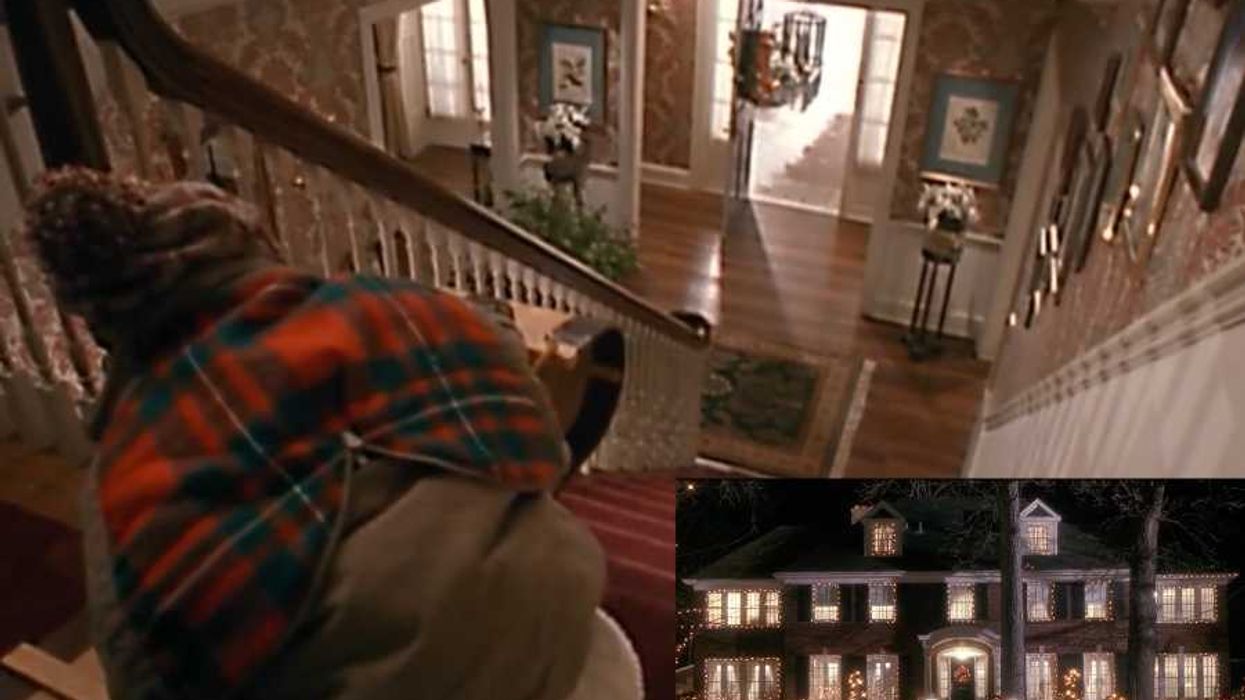










 A hotel clerk greets a guestCanva
A hotel clerk greets a guestCanva Gif of Faye Dunaway' as Joan Crawford demanding respect via
Gif of Faye Dunaway' as Joan Crawford demanding respect via  An empty rooftopCanva
An empty rooftopCanva
 A road near equatorial Atlantic OceanCanva
A road near equatorial Atlantic OceanCanva Waves crash against rocksCanva
Waves crash against rocksCanva

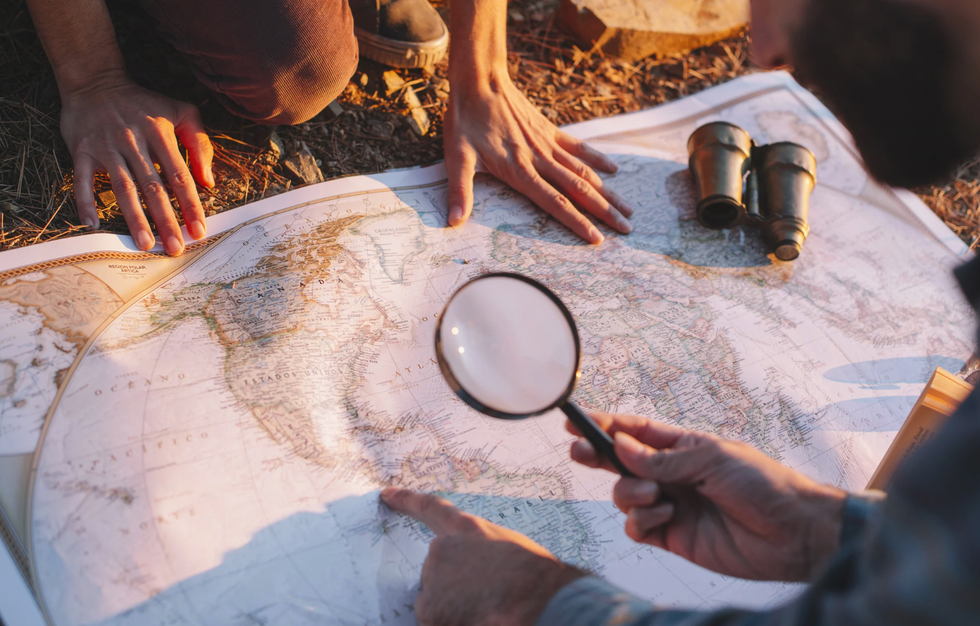 Two people study a mapCanva
Two people study a mapCanva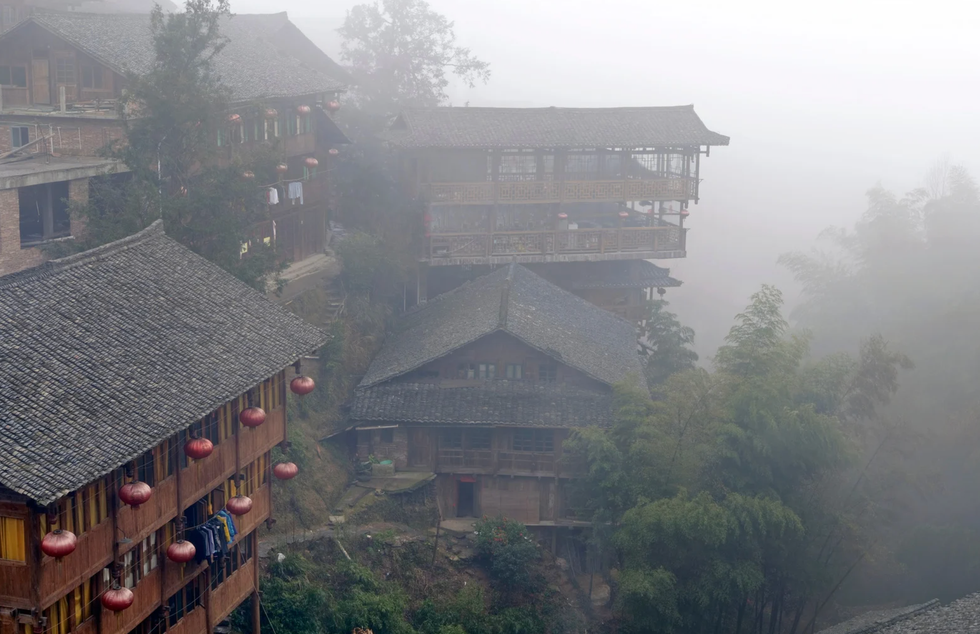 Foggy Chinese villageCanva
Foggy Chinese villageCanva

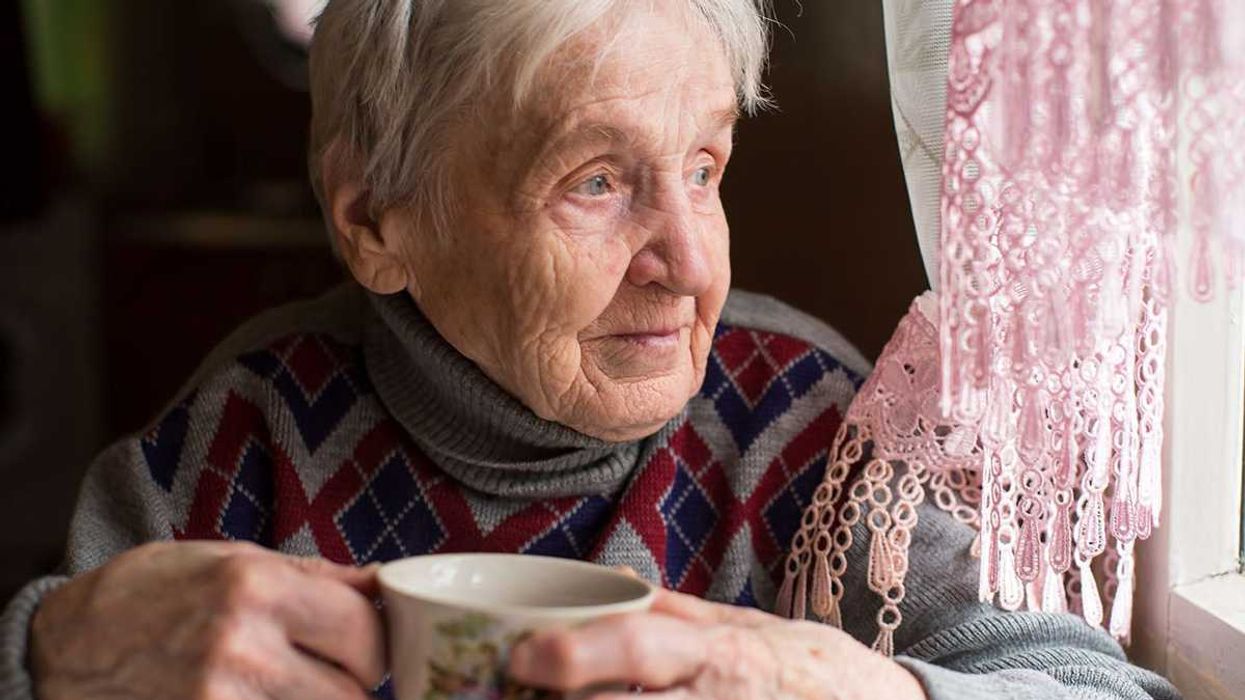 Older woman drinking coffee and looking out the window.Photo credit:
Older woman drinking coffee and looking out the window.Photo credit: 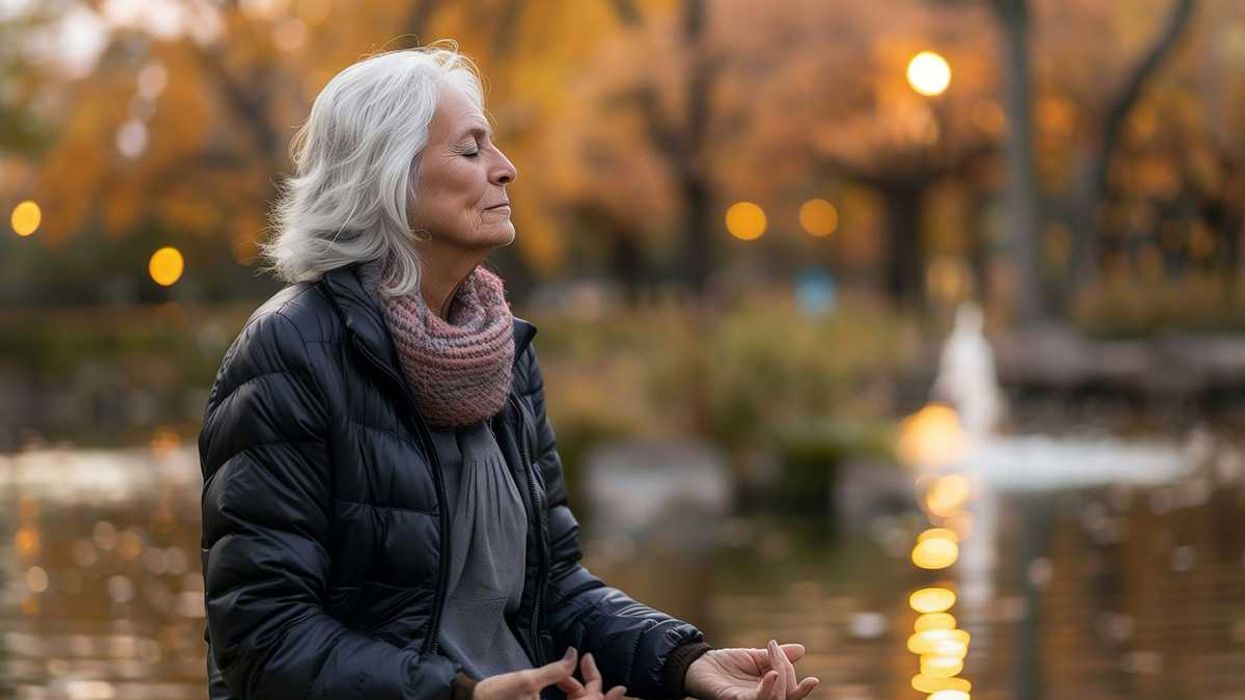 An older woman meditates in a park.Photo credit:
An older woman meditates in a park.Photo credit: 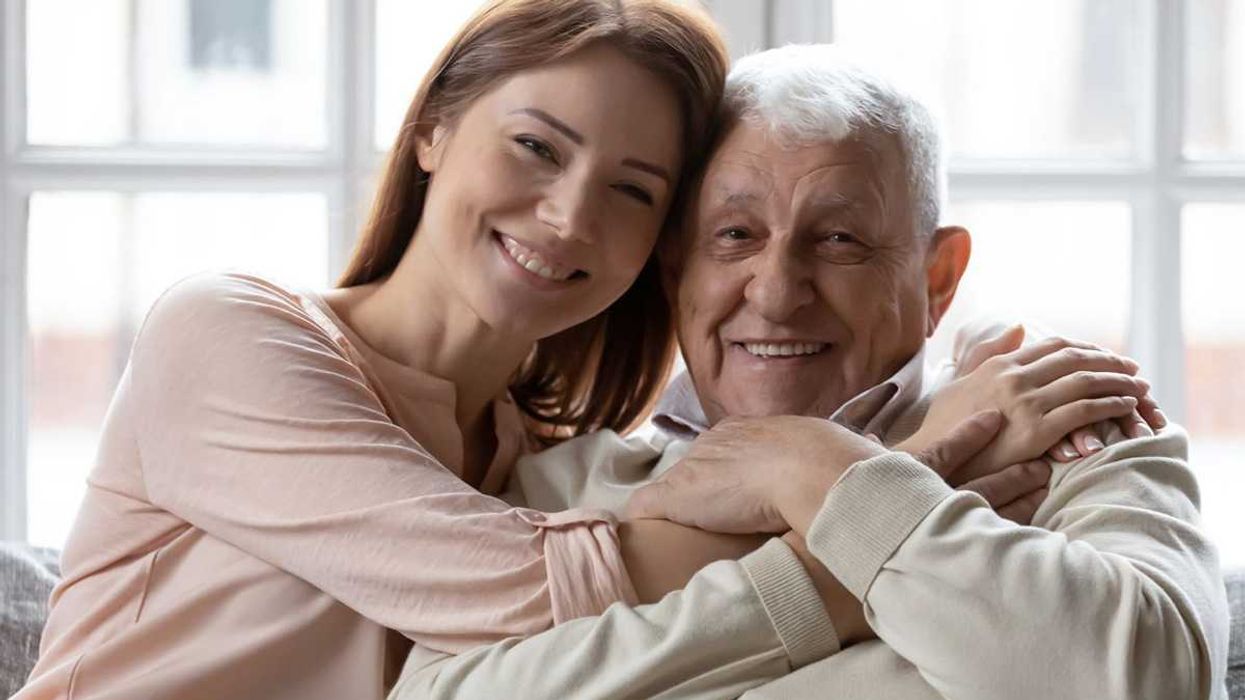 Father and Daughter pose for a family picture.Photo credit:
Father and Daughter pose for a family picture.Photo credit: 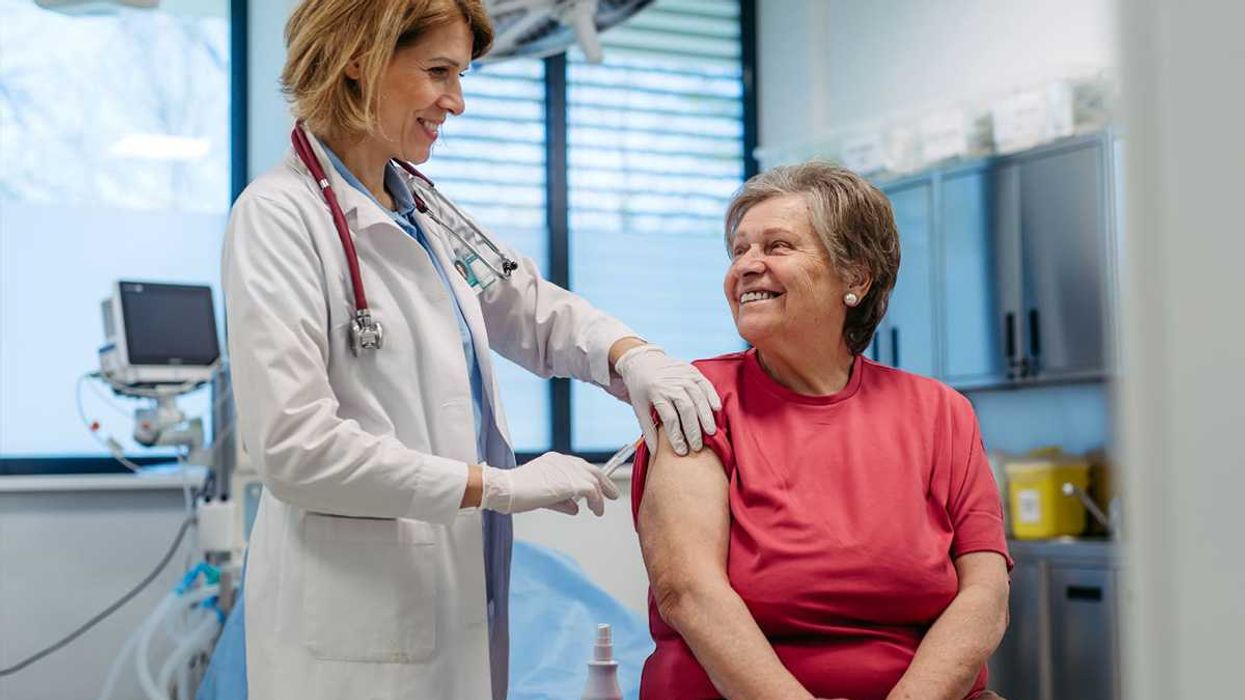 Woman receives a vaccine shot.Photo credit:
Woman receives a vaccine shot.Photo credit: 
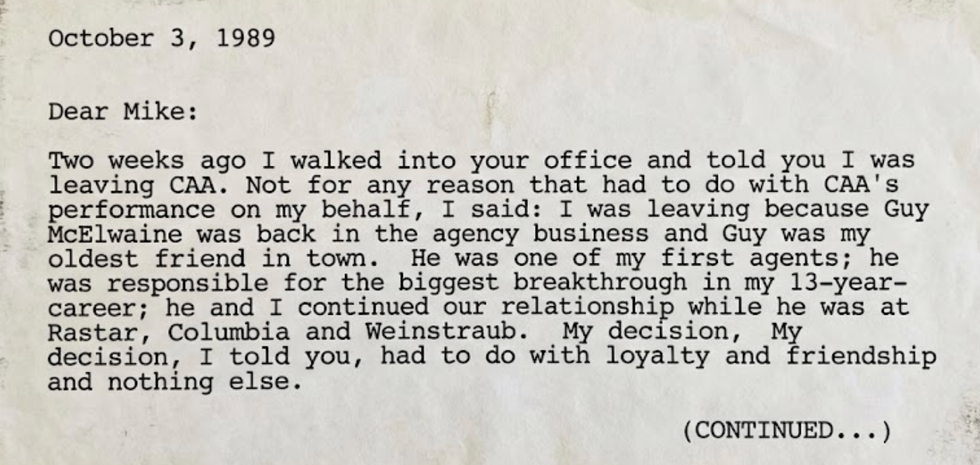 An excerpt of the faxCanva
An excerpt of the faxCanva